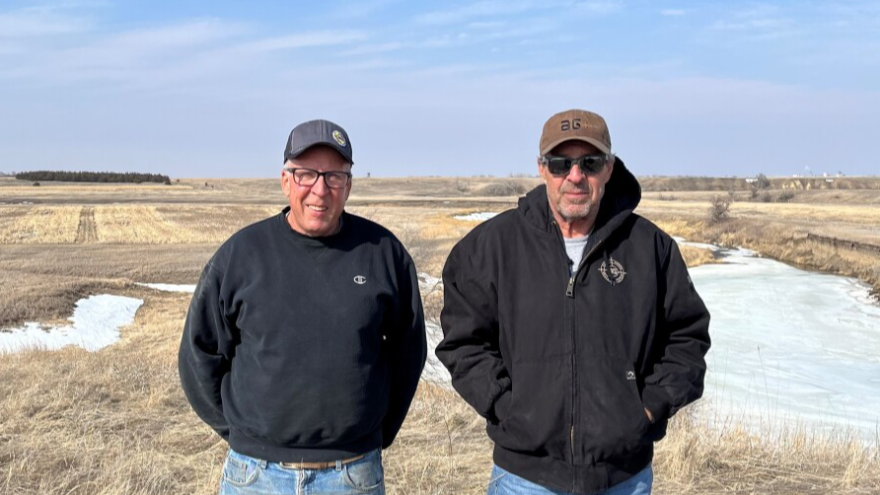Farmers use all sorts of technology to increase their crop yields. At the same time, they try to reduce how much it costs to grow crops.
Those costly inputs include land, water, fertilizer, herbicides, and insecticides. Using them more efficiently while generating less waste creates a more sustainable agricultural market.
GPS devices in tractors let farmers plant crops in more efficient patterns, which saves time, fuel, and ultimately money.
Gene Stehly and his brother Craig have been practicing precision farming for over forty years. Gene said they want to farm smarter.
“Precision Ag, in a simplified form, is providing you data, it is recording data which is the most important part of it. Data that you can use to make decisions down the road. Including what to put into habitat because you are making no profit on it year after year,” said Stehly.
That technical data can help the Stehly brothers figure out how to use their land effectively – and that includes which acres to plant for the biggest yields.
Not all farmers have the buying power to implement precision farming techniques, but for those who already do, the benefits are measurable.
“The equipment was not near as good as it is today in terms of planting into existing residue. So you had to fight to get your crop planted. You still do, no-till is pretty unforgiving in the spring, but I would say that initially, switching to no-till and doing the stuff that we did, we had to change our machines and our soil health started improving right away. I would say initially, that was the hardest thing,” said Stehly.
Recently, the Stehlys were recognized for their precision agriculture practices by Pheasants Forever. The Stehlys received the 2022/2023 Precision Farmer of the Year Award.
Using precision agriculture practices the brothers said they now have more pheasants on their property.
Gene said the award means a lot to his family and recognizes South Dakota’s strong pheasant history.
“It means everything to us, it’s a national award, and it's coming from the premier state of South Dakota. The premier state in the United States for hunting Pheasants. The Pheasants Forever organization in Mitchell... is very renowned within the Pheasants Forever global network,” said Stehly.
When it comes to precision farming, the farm and farmer are not the only ones to profit.
The U.S. Agriculture Department offers suggestions for wildlife-friendly farming practices. The techniques also help control erosion, integrate pest management, and leave crop “stubble” over the winter for wildlife habitat.
Many wildlife species profit from parcels of cropland intentionally left open as habitat.
Cristin Weber, a Precision Ag and Conservation Specialist with Pheasants Forever, said the phrase she encourages farmers to keep in mind is “farm the best, leave the rest.”
Weber travels the state promoting the “Every Acre Counts” initiative. The program is a partnership between Pheasants Forever, SDSU Extension, the SD Game Fish and Parks, and the Natural Resource Conservation Service – or NRCS.
“We have farm field biologists located in NRCS offices around the state and our goal is to assist landowners, farmers, and producers to implement habitat on their parcels of land where they see it would be beneficial for them and the land," said Weber. "Our goal is just to improve water quality, habitat, reduce erosion, just do what we can to improve environmental benefits.”
The increase of farmers utilizing precision agricultural practices benefits all participants in the process.
In 2021 the USDA surveyed farmers across the U.S. asking whether they used precision agricultural practices.
Fifty-three percent of South Dakota farmers said they use precision technology – the second-highest response rate in the nation.
Once a farmer establishes precision-based practices, they allow for increased profitability and reduced costs. It ultimately generates a more sustainable product, and lets family farms work their acres for generations to come.


